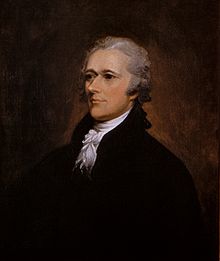April 1 is April Fool’s Day.
The first day is April Fools’ Day or All Fools’ Day, which is a day at one time popular for pranks and harmless practical jokes. The origin of this day is not positively known. Records show that it has been going on at least since 1564, when Jan 1 was re-established in France as the first day of the year. The change confused many people, but in time it led to the fun of exchanging false greetings for the first of the year on the old day. April 1 coincides with the Zodiac sign of the fish, so the French call it “Fooling the April Fish Day”. A one-time April Fools’ prank of the Scots was “hunting the gowk”, which sent the victim on false errands; anyone who fell for this prank was called a gowk, or cuckoo.
National Sourdough Bread Day
International Tatting Day Tatting is a technique for handcrafting a particularly durable lace from a series of knots and loops. Wiki How has an introduction to beginners tatting with pictures.
Birthday of William Harvey (April 1, 1578), English physician, known for his discovery of the circulation of the blood.
 Publication of Federalist Paper #76: The Appointing Power of the Executive written by Alexander Hamilton in 1788.
Publication of Federalist Paper #76: The Appointing Power of the Executive written by Alexander Hamilton in 1788.
From www.gradesaver.com
“…this paper illustrates the importance of the guiding principles of separation of powers and checks and balances. Hamilton sees potential for defects in both the presidency and the Senate. Therefore, neither can be entrusted with all the power of appointment. This further underscores the important role compromise and pragmatism played in the design of the Constitution. The founders never claimed that the political system they created would be perfect or risk-free. Rather, they were animated by the belief that the only reliable way to limit abuses of power was to ensure that the various branches of government had both the incentive and the ability to keep an eye on one another.
It is interesting to note that Hamilton’s prediction of partisan concerns delaying or complicating the appointment of public officials has come true in recent American history. It is not uncommon for the appointment of officials to key positions in the national bureaucracy to be held up by political opponents of the president. Hamilton had hoped that giving the Senate power to approve presidential appointees would serve as a check on corruption. Unfortunately, senators in both political parties have often used their powers over the ratification process as a way to score cheap political points. Appointments are often held up on the basis of political squabbles rather than concerns about the appointee’s character or fitness for office.”
Birthday of Otto von Bismarck (1815), German politician, 1st Chancellor of the German Empire (d. 1898)
April 1, 1826 – Samuel Morey patented the internal combustion engine.
1908 – Birthday of Abraham Maslow, American psychologist (d. 1970). Maslow developed a theory of the hierarchy of needs. One cannot aspire to a higher need until the lower needs are met. For example, if one has no food, he will not look for love. If one feels threatened, he will not be creative.
1924 – Adolf Hitler was sentenced to five years in jail for his participation in the “Beer Hall Putsch”. However, he spends only nine months in jail, during which he writes Mein Kampf. (translated: My Struggle) is a 1925 autobiographical book describing the process by which Hitler became antisemitic and outlines his political ideology and future plans for Germany.
1954 – President Dwight D. Eisenhower authorized the creation of the United States Air Force Academy in Colorado.
Apple Inc. is formed by Steve Jobs, Steve Wozniak, and Ronald Wayne on April 1, 1976. As of 2019, Apple’s net worth has been sitting around $940 billion.
1979 – Iran became an Islamic republic by a 99% vote, officially overthrowing the Shah.
 1999 – Nunavut is established as a Canadian territory carved out of the eastern part of the Northwest Territories.
1999 – Nunavut is established as a Canadian territory carved out of the eastern part of the Northwest Territories.
